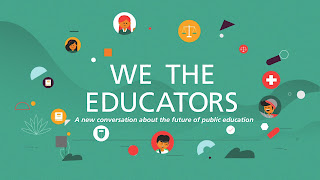PROFESSIONAL TEACHING: EDUCATORS IN GENERAL
PROFESSIONAL TEACHING: EDUCATORS IN GENERAL
This article provides to the readers about the definition of professional teaching in general, it consists of what is an educator, how to become and how to be good at it, and the most important is how to be a professional educator itself.
What is an Educator?
Well, this question is simply had different answers if it was meant to be answered by some regular people, one can simply explain an educator as a person who teaches another person to a good side, while the other one prefers an educator is basically a teacher. Well, those answers aren’t wrong and honestly, it’s nearly right.
An educator teaches students in a school or other learning environment. Responsibilities for teachers include preparing and presenting lesson plans, supervising students in a classroom environment, grading coursework, and managing classroom operations and expectations. Educators work at levels ranging from early childhood development teaching to college and university degree programs. A career as an educator involves duties like preparing students for continuing education or future jobs, offering emotional support as a mentor or counselor, and developing a challenging and engaging curriculum.
In summary, An educator is a person who teaches everyone whether he or she is a student or not it doesn’t matter when someone can make people more and more educated, then he or she is an educator.
How to be an Educator and what makes it good?
The qualifications to become an educator vary depending on what age group or level you plan to teach and your country. In my country Indonesia, to become a certificated educator, you will need at least an S-1 or Bachelor’s degree in specific majoring that is educational department faculty. The rest of the world are basically the same, but still, have differences. Many early childhood educator roles require experience with children and a high school diploma or GED certificate, while post-secondary educator roles require a master’s degree or higher. For kindergarten through twelfth-grade teachers, job requirements include a bachelor’s degree or higher and a teaching credential or certificate. Experience working with the age group you want to teach and effective communication skills are also beneficial.
The job of an Educator is not only just make people educated or simply teach them to learn more knowledge. A good educator invests time and effort into their students, offering guidance and support in the classroom and on a personal level. The ability to communicate effectively with students, parents, faculty, and administrators at your school or university helps to make you a good educator. Regardless of the level you teach, continuing to learn new teaching skills to facilitate student learning is another sign of a good teacher. Your underlying knowledge and enthusiasm for the subject matter also make you a good educator.
What are professional Educators?
The word “professional” can be defined in various words. According to Peter Johnsons: ‘A professional is someone who displays high levels of expertise and efficiency.’
‘Professionalism is a jigsaw with many pieces and technical expertise is only part of this jigsaw,’ says Penny Clarke, programme director of BSc Accounting at Manchester Business School. ‘My view is that professionalism is exhibited in a person who knows when to speak and when to listen, when to challenge and when to submit, and when to lead and when to be a team player.’
According to their opinion, we can conclude that professional or professionalism is basically when people who extremely mastered their jobs, effective and efficient in order to gain specific purposes.
These are some characteristics of professional educators:
• Professional educators are value-driven, guided by principles, passion, and a purpose bigger than themselves.
• Professional educators are need analysts – competent to diagnose and prescribe options for educational success and significance.
• Professional educators believe their work is a vocation and calling rather than an occupation where one merely occupies space.
• Professional educators recognize that change is the norm. They are growth-oriented and consider themselves life-long learners and contributors.
• Professional educators are climate creators, recognizing that the conditions that surround learning contribute to learning.
• Professional educators are catalysts in promoting calculated risks that advance their profession and enable everyone accesses to success.
• Professional educators promote cohesiveness, collaboration, and team-building. They promote a “we are better together” philosophy.
• Professional educators create a climate of ownership by ensuring that everyone involved in the educational process is invited to participate.
• Professional educators are accountable to their clients, community, parents and students, providing a quality educational program for all children.
• Professional educators belong to an organization that promotes their profession above personal gain.
Author: Ahmad Zaelani
Refference:
https://www.ziprecruiter.com/e/What-Is-an-Educator https://www.accaglobal.com/in/en/student/sa/features/being-professional.html https://www.astapro.org/index.php/about-us/the-professional-educator

Comments
Post a Comment